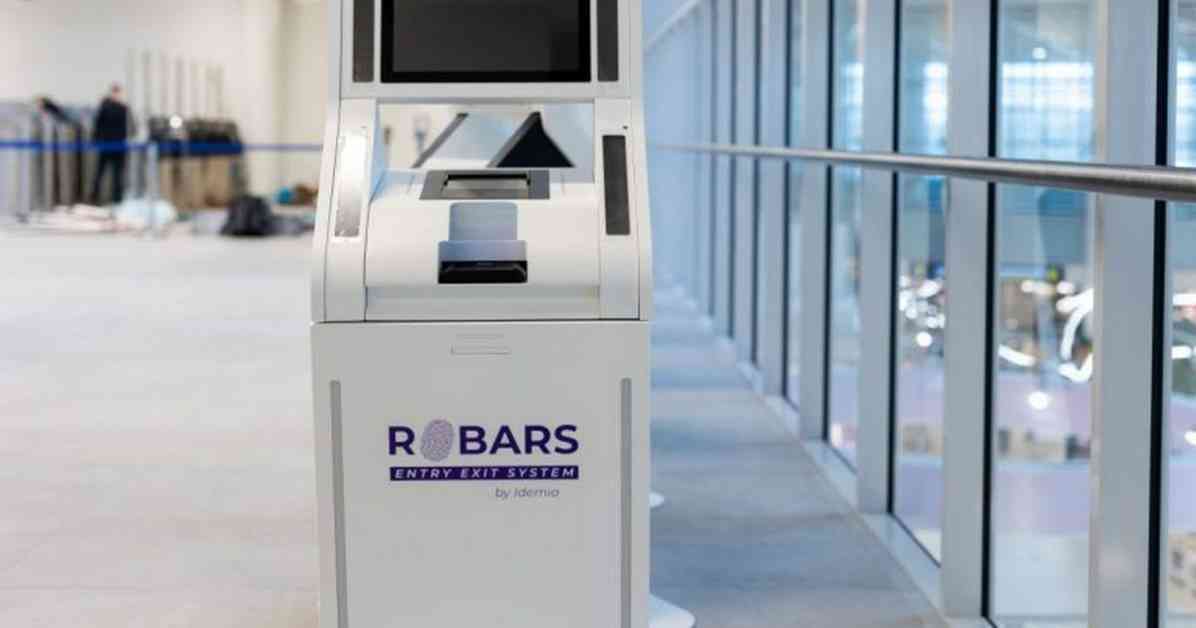EU Airport Delays Expected as New Scanners Roll Out
Travellers preparing for trips to European countries are being advised to brace for potential delays as a new passport scanning system is set to roll out across EU borders. The European Entry/Exit System (EES) will introduce automated scanners that will scan passports and collect biometric data from non-EU travellers entering the Schengen Area.
The EES is slated to become operational in the autumn, with the official launch date set for November 10th. EU Home Affairs Commissioner Ylva Johansson has confirmed that the system will require a new €7 fee for entry into countries like France, Spain, Greece, Italy, and Portugal. This new procedure will impact all travellers entering the European Union, including those traveling from the UK.
New Border Controls and Automated Registration System
Under the EES, non-EU travellers entering the Schengen Area will be required to pass through new border controls equipped with automated scanners. Every individual crossing an EU external border will need to scan their passport or travel document at a self-service kiosk. This process will record the traveller’s name, biometric data, as well as the date and location of entry and exit.
Facial scans and fingerprint data will also be collected every three years, allowing for multiple trips within that timeframe. It’s important to note that this system will not apply to legal EU citizens, residents, or individuals with long-stay visas. However, concerns have been raised regarding potential teething problems that could lead to significant delays at ports and airports.
Preparations and Concerns
Home Affairs Commissioner Johansson expressed optimism about the imminent launch of the EES, stating, “The moment is finally here. Everything is coming together, and we are in the final testing phase. Carriers, operators, train stations, airports – everyone is gearing up for the big day.” Despite the commissioner’s positive outlook, travel industry experts have cautioned about the likelihood of delays and queues at airports for up to a year.
Andrea Godfrey, head of Regent Travel, highlighted the expected challenges posed by the new system, stating, “We have been advised to anticipate delays and queues at airports for an extended period. The initial phase of these schemes is likely to be chaotic and slow.” Additionally, Discover Ferries, the industry body for passenger ferries, has raised concerns about the lack of clarity surrounding the EES system.
French Transport Minister Patrice Vergriete voiced apprehensions about potential operational issues at the EU’s external borders, emphasizing the need to ensure passenger fluidity. French authorities will oversee EES border checks at key UK ports like Dover, Eurostar, and Eurotunnel. Collaboration with the UK government is underway to mitigate the system’s impact on border flows and traffic, although concerns persist regarding potential waiting times.
Implications for Travel and Tourism
Government agencies and representatives from the tourism industry have warned of possible long queues for ferry traffic sailing from Dover to Calais as a result of the EES implementation. The system’s delayed launch, initially slated for 2022 but hampered by IT issues and installation delays, has raised concerns about its smooth integration into existing border control processes.
The EES aims to enhance border security by providing comprehensive data on individuals entering the Schengen Area with foreign passports. By monitoring entry and exit patterns, the system seeks to combat irregular migration and deter criminal activities such as identity fraud. Biometric identification, including facial scans and fingerprint data, will play a crucial role in ensuring the system’s effectiveness.
Looking ahead, the European Travel Information and Authorisation System (ETIAS) is set to be introduced approximately six months after the EES launch. This additional scheme will mandate non-EU citizens who do not require an EU visa to obtain travel authorization before visiting the Schengen Area. The ETIAS application process will involve a €7 fee and will grant approved individuals electronic travel authorization linked to their passport for a period of three years.
Conclusion
As the EU prepares to implement the Entry/Exit System (EES) and the European Travel Information and Authorisation System (ETIAS), travellers are advised to anticipate potential delays and queues at EU borders. The introduction of automated scanners and biometric data collection aims to enhance border security and streamline entry procedures for non-EU travellers.
However, concerns remain about the system’s impact on passenger flow, particularly at key points of entry such as airports and ports. Collaboration between EU authorities and international partners will be crucial in addressing operational challenges and ensuring a smooth transition to the new border control processes.
Overall, the rollout of the EES and ETIAS signifies a significant shift in EU border management practices, with a focus on enhanced security measures and streamlined entry procedures. Travellers are encouraged to stay informed about the new requirements and prepare accordingly for potential delays during the initial implementation phase.




















